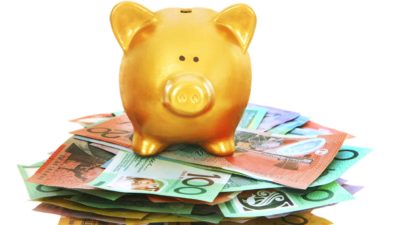You're one of the responsible ones. You always pay your credit card bill, in full, each month.
But even though you're doing the right thing, you might have noticed that you still get charged interest.
Or worse, you're getting charged interest, but you don't know, because you haven't checked.
After all, you pay the whole bill each month… so why would you think to check whether or not the bank is clipping the ticket?
It turns out that sometimes a purchase is a purchase… but sometimes it's a cash advance.
Confused? I was, too, but stick with me.
When it comes to credit cards, some (most/all) providers split transactions into two different categories: purchases and cash advances. Which seems straight forward, but cash can also include 'transactions that are the equivalent of withdrawing cash'.
The most obvious version of this is buying foreign exchange. If you use your credit card to buy US Dollars, Japanese Yen or Indian Rupees, the credit card companies categorise that as a 'cash advance', and interest starts accruing immediately.
Next is gift cards or prepaid cards (think: prepaid Visa). Again, the credit providers have decided that they are 'cash by any other name', and to them, the interest smells just as sweet. Buy a gift card, and you could be paying interest straight away, even if your card has an interest free period on purchases.
One category that most people aren't aware of is gambling. In fact, that's how I stumbled onto this charge, years ago when I bought a lotto ticket. Again, because the banks and credit companies get to make the rules, they've decided that gambling is equivalent to a cash withdrawal. No, I don't know how they rationalise it, either, but they do… so if you gamble using a credit card, you'll pay,
Here's the worst example, in the sense that it's not always clear: depending on the merchant, a BPay transaction or even a straight-out bill payment can be considered a cash advance. I know I've paid some bills in the past that have been treated as cash advances, much to my chagrin. To be fair, most of the time your credit card company and/or the biller will let you know that the transaction will be treated as a cash advance… but if you have to pay the bill, there's not a lot you can do about it.
Of course, then there's just plain cash: taking money out of an ATM using your credit card — but I assume you already knew that a cash advance would, well, be a cash advance.
It does raise the question, though: what's the difference between me buying a $100 pair of jeans using my Visa card, and me taking a $100 cash advance, then wandering into Just Jeans and buying them with cash?
Yep, nothing. But when you're a dominant credit card provider, you get to make the rules. And, for the items above, the rules say you'll pay.
The solution?
In our increasingly electronic world, there aren't too many. The first one is to simply not use your card in those circumstances. Fair enough, I guess, but it's inconvenient. Still, with a little planning, you can minimise or eliminate these scenarios.
Second, but somewhat more financially constraining, you can pay off those cards in advance, before the bill arrives. Banks are obliged to apply your payment to the highest interest amount first (often cash advances), so that should take care of any interest.
And thirdly, if somewhat unsatisfactorily, you can just cop the (hopefully relatively small) interest bill on the chin, as the equivalent of a fee for the convenience of making the transaction. For some, that's unthinkable, but the more pragmatic might be happy with the trade-off.
Foolish Bottom Line
I'd be happy to see the regulators ban the distinction between a cash advance and a purchase, when it comes to credit cards. At the end of the day, if you spend $1, you owe them $1, no matter how it was spent.
Credit card interest is already pecuniary enough without being slugged extra for an arbitrary category of transactions.
In the meantime, as always, it pays to spend wisely, and check your credit card statements carefully.








